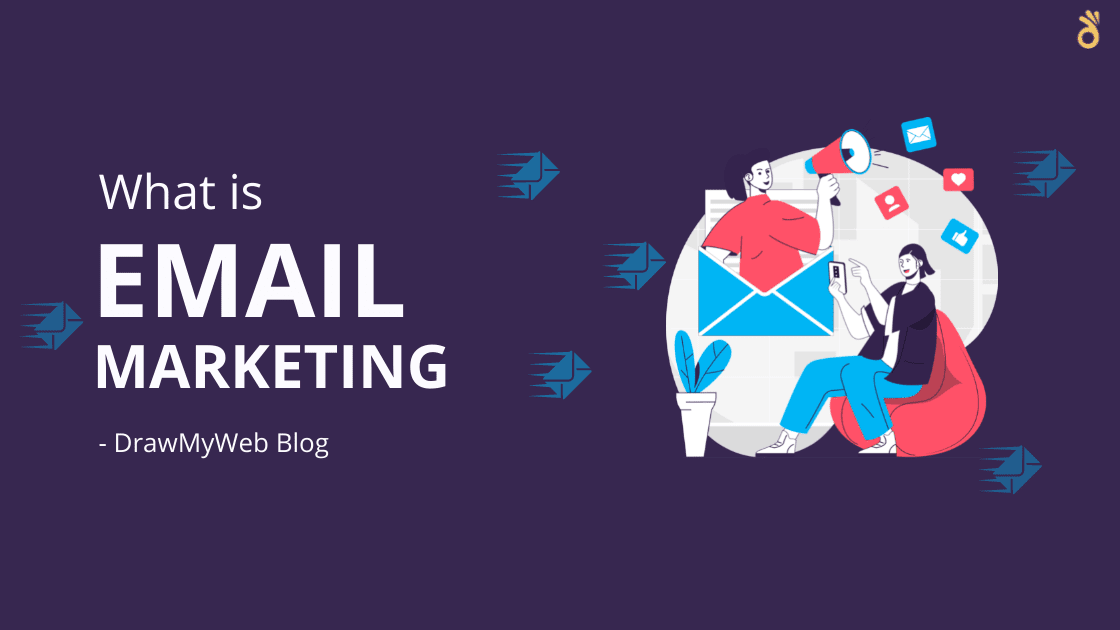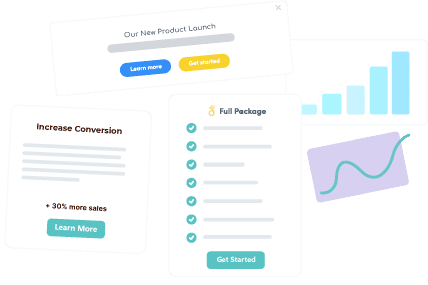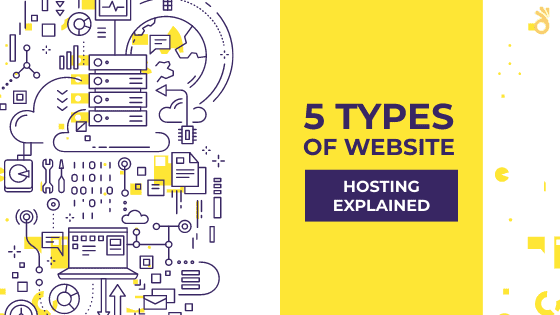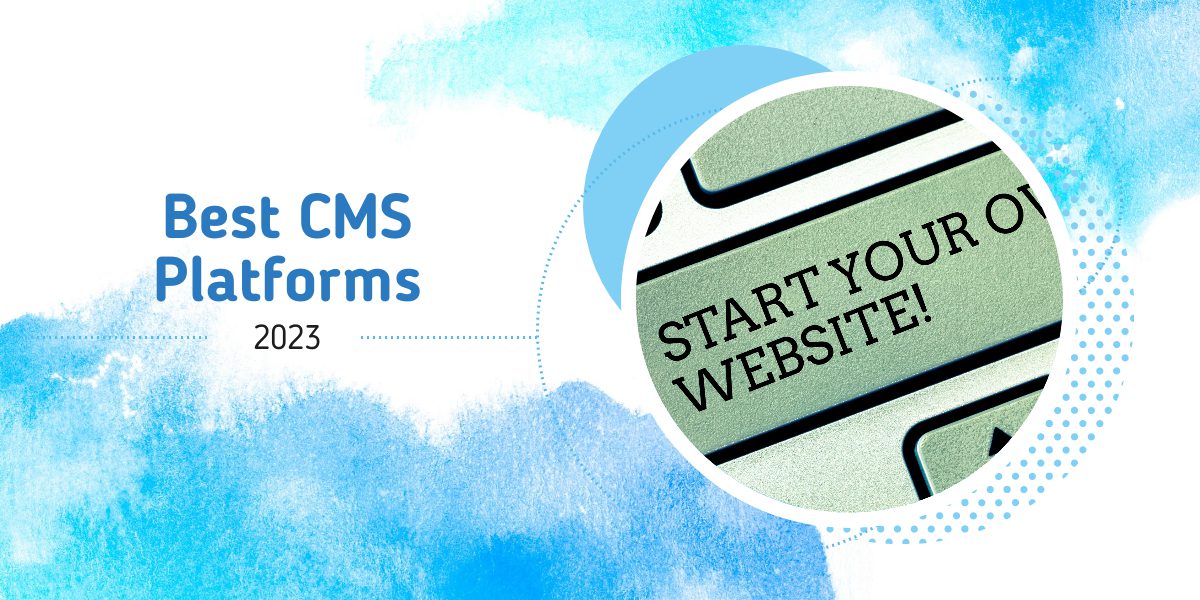Email marketing is a highly effective digital marketing strategy that uses email to promote your business, build customer relationships, and increase sales. It allows you to communicate directly with your target audience and can be used to promote a wide range of products and services. In this beginner’s guide, we’ll explore email marketing, how it works, and why it’s important for your business.
So, What is Email Marketing?
Email marketing is sending commercial messages, typically to a group of people, via email. Email marketing aims to build relationships with customers or prospects, promote a product or service, or communicate information. Email marketing can be used to send newsletters, promotional offers, product updates, event invitations, and more.
How Does Email Marketing Work?
Email marketing typically involves four key steps:
- Building an Email List: The first step in email marketing is building an email list. This involves collecting email addresses from people who have opted in to receive email communications from your business. You can build your email list by offering sign-up incentives, hosting events, and more.
- Creating a Campaign: Once you have a list of email addresses, the next step is to create an email campaign. This involves designing an email template, writing copy, and selecting images or other multimedia to include in the email. You’ll also need to decide on the purpose of your campaign, whether it’s to promote a product or service, share news, or provide information.
- Sending the Campaign: After you’ve created your campaign, it’s time to send it to your email list. You can send emails manually or use an email marketing service to automate the process. When sending your campaign, test it on different devices and email clients to ensure it looks and functions as intended.
- Analyzing Results: You’ll need to analyze your email campaign results. This involves tracking open rates, click-through rates, conversions, and other metrics to determine your campaign’s effectiveness. You can use this data to refine future campaigns and improve your overall email marketing strategy.
Why is Email Marketing Important?
Email marketing is an important part of any digital marketing strategy for several reasons:
- Cost-Effective: Email marketing is one of the most cost-effective marketing strategies available. It’s significantly cheaper than traditional marketing methods like print ads and direct mail campaigns, and you can reach a large audience with minimal effort.
- High ROI: Email marketing has a higher return on investment (ROI) than other marketing channels. According to a study by DMA, email marketing has an average ROI of $42 for every $1 spent.
- Personalization: Email marketing lets you personalize your communications with customers and prospects. You can segment your email list based on demographics, interests, and behaviors and send targeted messages more likely to resonate with your audience.
- Measurable: Email marketing is highly measurable, allowing you to track open rates, click-through rates, and other metrics. This data can be used to refine future campaigns and improve your overall email marketing strategy.
- Builds Relationships: Email marketing allows you to build relationships with customers and prospects over time. You can establish trust and loyalty with your audience by providing valuable content and personalized messages.
Types of Marketing Emails

Now that we understand what email marketing is and why it’s important let’s take a closer look at the different types of marketing emails that businesses can send:
- Newsletters: Newsletters are a popular type of email marketing that businesses use to keep their subscribers informed about industry news, updates, and promotions. They can include company news, educational content, and exclusive offers.
- Promotional Emails: Promotional emails are designed to promote a product or service. They can include special offers, discounts, or limited-term promotions. These emails encourage subscribers to purchase or take advantage of a specific offer.
- Welcome Emails: Welcome emails are sent to new subscribers to introduce them to your brand and welcome them to your email list. They can include a brief introduction to your company, links to your social media profiles, and a call to action (CTA) to encourage subscribers to engage with your brand.
- Abandoned Cart Emails: Abandoned cart emails are sent to customers who have added items to their cart but haven’t completed the checkout process. They can include a reminder of the items in the cart, a discount or special offer, and a CTA to encourage the customer to complete their purchase.
- Re-Engagement Emails: Re-engagement emails are sent to subscribers who haven’t engaged with your brand in a while. They can include a special offer or discount to encourage subscribers to engage with your brand again.
- Survey Emails: Survey emails are sent to subscribers to gather feedback on their experience with your brand. They can include questions about customer satisfaction, product or service feedback, and suggestions for improvement.
- Event Invitation Emails: Event invitation emails are sent to subscribers to invite them to an event, such as a product launch, webinar, or conference. They can include event details, registration information, and a CTA to encourage subscribers to RSVP.
Benefits of Email Marketing
Email marketing is an effective way to reach your audience and build customer relationships. Here are some of the benefits of email marketing:
- Increased Brand Awareness: By sending regular emails to your subscribers, you can keep your brand top of mind and increase brand awareness. This can lead to more website traffic, social media engagement, and sales.
- Increased Sales: Email marketing can help drive sales by promoting your products or services to your subscribers. By sending targeted and personalized emails, you can encourage your subscribers to purchase or take advantage of a special offer.
- Cost-Effective: Compared to other marketing channels, email marketing is a cost-effective way to reach your audience. There are no printing or postage costs, and many email marketing platforms offer affordable pricing.
- Personalized Messaging: Email marketing lets you personalize your messaging based on the subscriber’s interests, preferences, and behavior. By using segmentation and automation, you can send targeted emails that are more likely to resonate with your subscribers.
- Measurable Results: With email marketing, you can track open rates, click-through rates, and conversion rates, allowing you to measure the success of your campaigns and make data-driven decisions.
- Builds Customer Relationships: Email marketing can help you build lasting customer relationships by providing valuable content and personalized messaging. This can lead to increased customer loyalty and repeat business.
- Easy to Get Started: Email marketing is easy to get started with, and many email marketing platforms offer user-friendly interfaces and templates to help you create professional-looking emails.
Final Thoughts
Email marketing is a powerful tool to help businesses of all sizes reach and engage with their target audience. However, it is essential to remember that email marketing requires a strategic approach to be successful. Businesses must carefully plan their campaigns, segment their audience, and track their results to ensure they get the best possible return on investment.
By understanding email marketing and how it can benefit your business, you can create effective campaigns that drive sales and build brand loyalty. Whether you are a small business owner or a marketing professional, email marketing is a valuable tool that should be a part of your marketing strategy.







